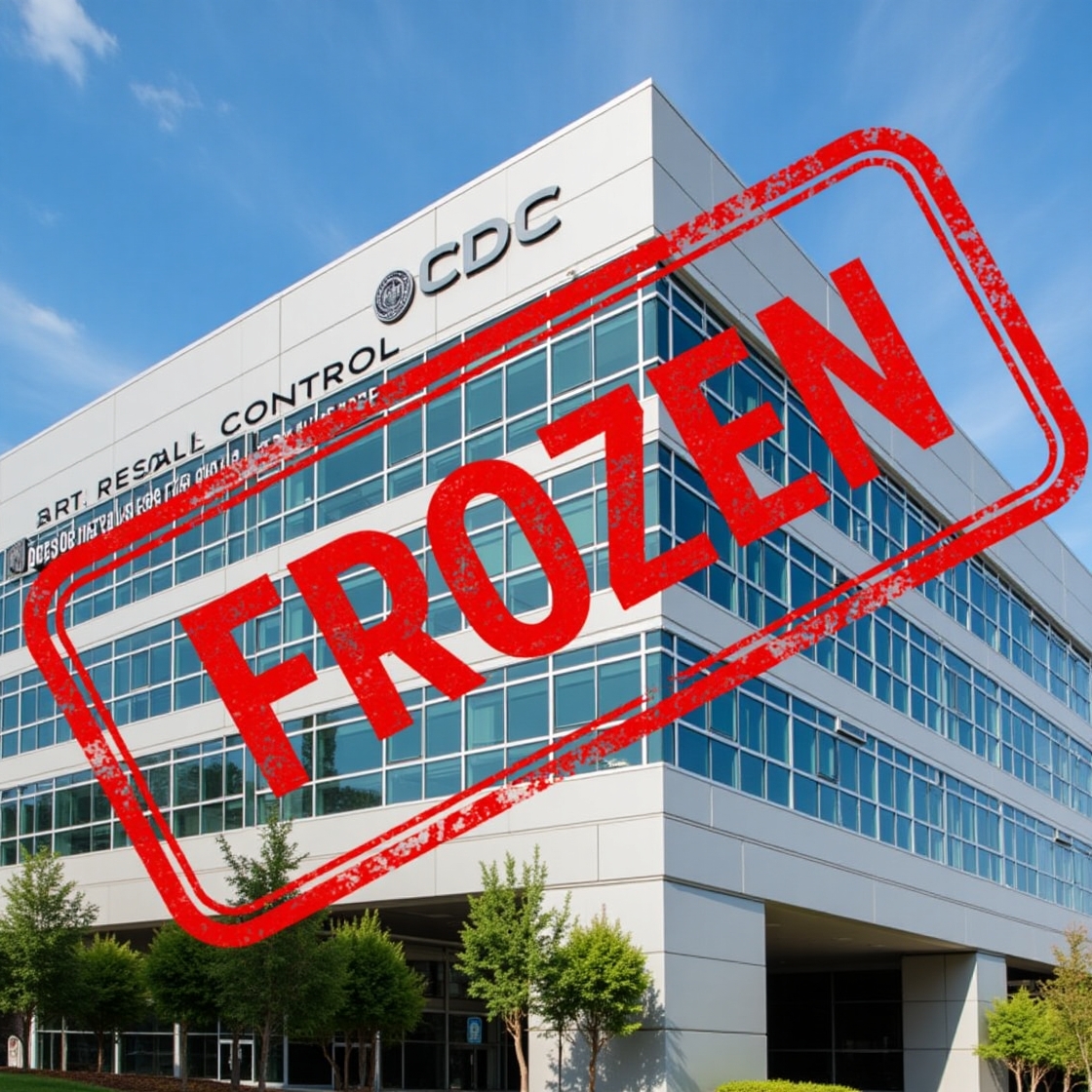In January 2017, when Donald Trump took office as the 45th president of the United States, it marked the beginning of a period of significant changes to federal policies, especially those concerning public health. One of the most notable shifts during the Trump administration was its freeze on a number of reports and posts from major health agencies. This move had wide-ranging implications, affecting everything from health-related data sharing to the transparency and functioning of health agencies like the Centers for Disease Control and Prevention (CDC), the National Institutes of Health (NIH), and the Food and Drug Administration (FDA).
This article delves deep into the reasons behind these freezes, the impact on public health, and the long-term consequences of such actions. We will also explore how these policy decisions affected the American public, health professionals, and global health dynamics.
The Freeze on Health Agency Reports and Posts
During the Trump administration, the freeze on health agency reports and posts was not limited to one specific area but affected a variety of sectors within public health. The policy affected everything from research findings to regular updates on public health threats, as well as the publication of data and health-related advice. One of the most significant freezes involved the Centers for Disease Control and Prevention (CDC), where multiple reports on topics such as the opioid epidemic, climate change, and sexual health were held back.
The government cited reasons such as the need for a review of content before publication, concerns about political correctness, and ensuring that any new information aligned with the president’s policies. However, critics of the administration argued that the freeze was a move to suppress evidence-based health data that did not align with the political agenda of the time.

Why Did the Trump Administration Freeze These Reports?
The Trump administration’s decision to freeze health agency reports and posts appeared to be part of a broader pattern of exerting control over federal agencies. Many public health professionals and experts raised concerns that these actions were designed to shape the narrative around health issues and prevent the dissemination of information that could have contradicted the administration’s policies. Several key reasons behind these freezes include:
Political Control and Policy Alignment
One of the most commonly cited reasons for freezing health agency reports was to ensure that all data and publications aligned with the Trump administration’s policies. From the early days of the administration, there was an effort to reduce the influence of government agencies like the CDC and NIH in shaping public discourse, particularly on issues such as climate change, tobacco use, and the opioid crisis. For instance, the CDC was prohibited from using certain terms, such as “climate change,” “science-based,” and “evidence-based,” in official documents.
Budget Cuts and Organizational Changes
The Trump administration proposed significant cuts to the budgets of key health agencies. These cuts directly impacted the resources available to health departments and hindered their ability to generate and release timely health data. The reduction in funding also led to staffing shortages, making it more difficult for agencies to complete and publish important reports.
Changing Public Health Priorities
As the administration shifted its priorities, many public health issues that were once prioritized became secondary. This was particularly evident in areas such as mental health and addiction treatment, where the opioid epidemic, despite its growing toll, did not receive the attention it warranted. The freeze on health agency reports also coincided with shifts in how issues like infectious diseases and health care reform were framed and communicated.
Conflict with Scientific Evidence
The administration’s frequent conflict with scientific evidence and expert recommendations also led to the freezing of reports. Issues like COVID-19, vaccination, and other critical public health matters saw significant political pushback. Health officials and experts who relied on scientific consensus found themselves at odds with a government that often downplayed the severity of health issues, and in some cases, dismissed expert opinions entirely.
Impact on Public Health Agencies
The Trump administration’s freeze on health agency reports was particularly impactful for organizations like the CDC, NIH, and FDA. These agencies are crucial for monitoring and responding to public health emergencies, conducting scientific research, and providing accurate health information to the public. Freezing their reports not only hindered these essential functions but also damaged the credibility of these agencies in the eyes of the public and global health communities.
The CDC and Opioid Crisis Data
One of the most notable examples of frozen reports involved the CDC’s research on the opioid crisis. The agency had planned to release a comprehensive report on the opioid epidemic, highlighting the number of deaths, the demographic breakdown, and the specific drugs involved. However, this report was delayed for several months, and some experts believe this delay was politically motivated to avoid further scrutiny of the administration’s stance on opioid treatment and prevention.
NIH Research and Global Health
The NIH, another vital health agency, was also affected by the freezes. Key reports on the progress of HIV research, cancer treatments, and mental health programs were delayed or blocked. This hampered efforts to combat global health issues and reduced the transparency of U.S. government-led research. Additionally, NIH scientists faced increased pressure to align their work with the administration’s political priorities rather than focusing on independent, peer-reviewed research.
FDA Oversight and Public Trust
The FDA’s role in overseeing food and drug safety was similarly undermined by the freeze on reports. During this time, there were concerns that the administration’s desire to deregulate industries might lead to a lack of scrutiny over the safety of medical products and food standards. Public confidence in the FDA suffered, as the agency appeared to be under political influence.
Consequences of the Freeze
The freezing of reports and posts by health agencies had far-reaching consequences, both within the United States and abroad. Some of these consequences were immediate, while others unfolded over the long term.
Erosion of Public Trust
One of the most significant consequences was the erosion of public trust in health institutions. When health agencies like the CDC were seen as politicized or unable to release vital information, it created a sense of uncertainty and confusion. People were less likely to trust official health guidelines, leading to resistance against key public health measures, such as vaccinations and COVID-19 safety protocols.
Delay in Public Health Responses
In times of crisis, timely information is crucial. The delays in health agency reports impacted the ability to respond to public health threats efficiently. For instance, the delayed release of data regarding the opioid epidemic made it harder to enact effective policy changes, while the freeze on reports about climate change impacted the nation’s ability to address environmental health risks.
Global Health Implications
The freeze on U.S. health reports also had global implications. Many countries look to the U.S. for leadership in addressing health crises, whether it’s combating infectious diseases or addressing global health inequalities. When the U.S. government withheld vital information, it undermined the country’s credibility on the world stage. Additionally, international organizations like the World Health Organization (WHO) were impacted by the lack of data from the U.S.
Public Health Under the Biden Administration
With the inauguration of Joe Biden in January 2021, many of the policies instituted by the Trump administration were rolled back or reformed. This included the lifting of many of the freezes on health agency reports and the reinstatement of science-based health policies. Under the Biden administration, the CDC and other health agencies were empowered once again to release data and respond to health emergencies without political interference.
However, the long-term damage caused by the Trump administration’s freeze on reports and posts remains evident. Public trust in health agencies has been slow to recover, and the damage done to scientific integrity and transparency may take years to repair.

Conclusion
The Trump administration’s decision to freeze health agency reports and posts was a defining feature of its approach to public health policy. While it was framed as an effort to ensure that government agencies aligned with the president’s political agenda, it had profound consequences for public health. From stalling vital research on the opioid epidemic to delaying critical health guidance during the COVID-19 pandemic, the freeze on reports undermined the transparency and credibility of U.S. health agencies.
As the Biden administration works to restore the public’s trust in these institutions, it’s clear that the repercussions of the Trump-era freezes will continue to affect public health for years to come. Moving forward, it’s essential for policymakers to prioritize transparency, scientific integrity, and the autonomy of health agencies to ensure that future health crises are addressed with the urgency and evidence-based solutions they require.
